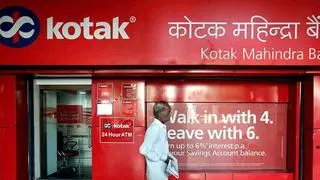Insolvency regulator Insolvency and Bankruptcy Board of India (IBBI) wants the Committee of Creditors (CoC)— an institution of public faith— to pursue strategies beyond recast of liabilities while striving for value maximisation with sustained resolution.
In a message published on its website — ahead of a workshop it plans to hold next week for the CoC—the IBBI has highlighted that this approach requires tremendous commercial dexterity and acumen on the part of members of the CoC.
“The CoC’s decisions must increase the value of the firm, which is valued 100 at the commencement of the resolution process, to at least 101 the next year, 102 the year after, and so on. Such value maximisation with sustained resolution requires strategies much beyond restructuring of liabilities”, the IBBI said.
Noting that the CoC has grown in strength and earned respectability over the last six years, the the IBBI has stressed the need to further strengthen the institution.
The responsibility comes with accountability, the IBBI said, adding that since the decisions of the CoC impact the life of the firm and consequently its stakeholders, the institution needs to be fair and transparent.
Up the game
These viewpoints of the IBBI over the need for the institution of the CoC to up their game is significant as it comes at a time when there is wide apprehension in society over the efficiency of functioning of the CoC given the huge haircuts being taken in the resolution plans adopted by them.
The IBBI has highlighted that the CoC has responsibility to rescue viable firms and close unviable ones. Its commercial wisdom is supreme. An inappropriate decision which lets a viable firm close or an unviable firm survive is very costly for stakeholders and the economy, according to the regulator.
The CoC needs to rescue a viable firm through a resolution plan which (i) has been received from a credible and capable resolution applicant, (ii) complies with the applicable laws, (iii) is feasible and viable, (iv) has potential to address the stress, (v) has provision for effective implementation of the plan, and (vi) maximises the value of the assets of the firm, irrespective of realisation for creditors under the plan. This ensures sustained resolution, the IBBI has said.
The CoC has powers commensurate with its responsibilities. It can decide a haircut of any magnitude to any or all stakeholders required for rescuing the firm; and to seek and choose the best resolution plan from the market, unlike other avenues that allow creditors to find a resolution only from existing promoters.
The resolution plan can entail a change of management, technology, or product portfolio; acquisition or disposal of assets, businesses, or undertakings; restructuring of organisation, business model, owner- ship, or balance sheet; strategy of turn-around, buy-out, merger, amalgamation, acquisition, or takeover and so on, as may be necessary to resolve the stress of the firm, the IBBI has said.
Manner of rescue
Also, the manner of rescue is as important as the rescue itself. The manner of rescue must ensure optimum utilisation of limited resources of the economy, promote availability of credit and entrepreneurship. The conduct of the CoC and its members must be above Board, according to the IBBI.
It is normal for a firm to have stress in a market economy. Such stress, however, needs to be addressed expeditiously in an orderly manner. The Insolvency and Bankruptcy Code, 2016 (IBC) envisages a market mechanism to address this situation swiftly.
The IBC recognises that a limited liability firm is a contract between equity and debt. As long as the debt is serviced; the equity, represented by a Board of Directors, has complete control of the firm. When the firm fails to service its debt, control of the firm shifts to the creditors, represented by a Committee of Creditors (CoC), for resolving stress. The Code envisages the CoC to comprise financial creditors for the process to be speedy, effective, and efficient.









Comments
Comments have to be in English, and in full sentences. They cannot be abusive or personal. Please abide by our community guidelines for posting your comments.
We have migrated to a new commenting platform. If you are already a registered user of TheHindu Businessline and logged in, you may continue to engage with our articles. If you do not have an account please register and login to post comments. Users can access their older comments by logging into their accounts on Vuukle.